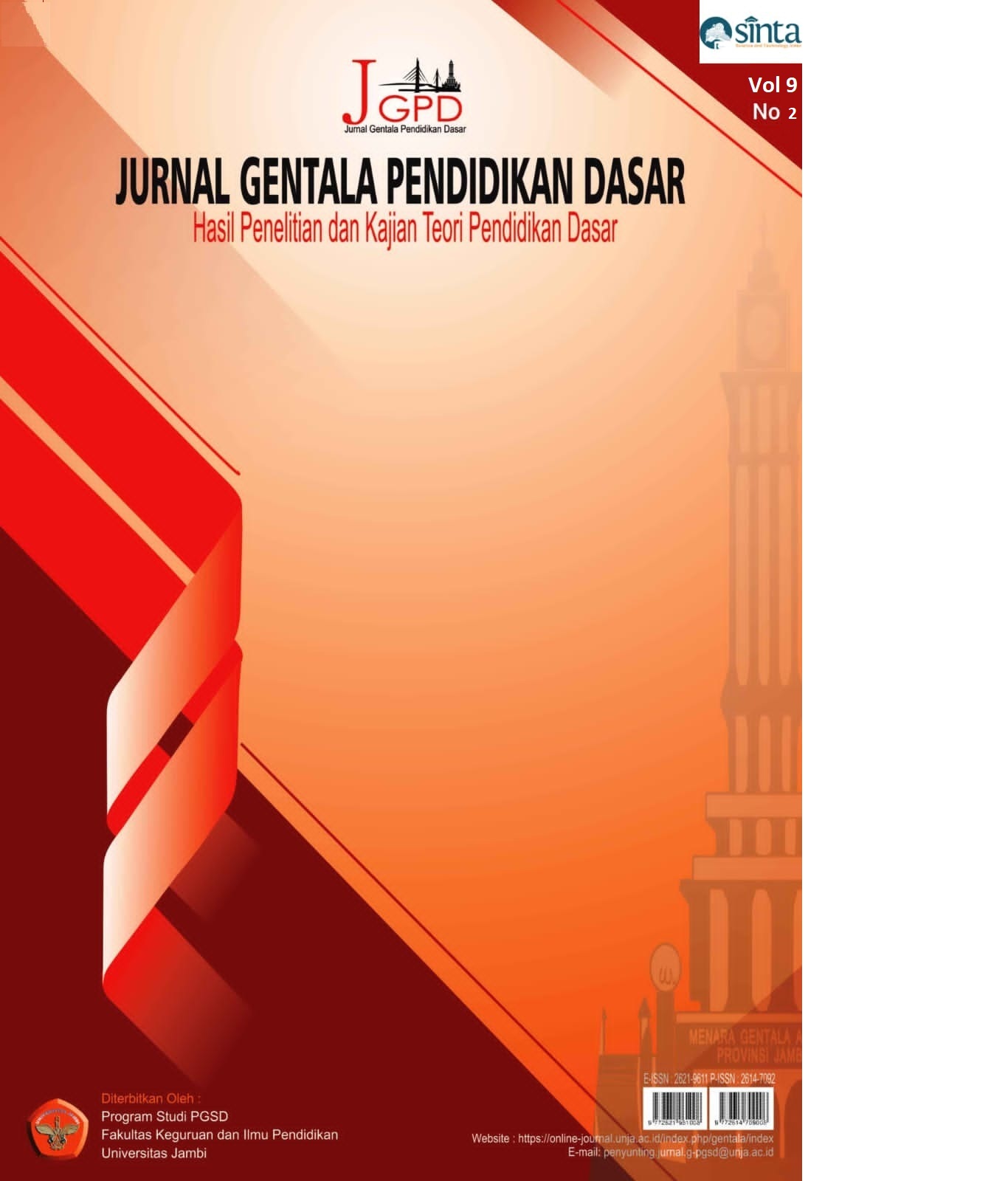The Influence of Management, Learning Environment, and Academic Stress on Students' Psychology of Elementary School Teacher Education (PGSD) Study Program Students in the Era of Technology
DOI:
https://doi.org/10.22437/gentala.v9i2.38799Keywords:
Stres Akademik, Classroom Management, Learning Environment , Academic Stress, Psychology of elementary education studentsAbstract
This study aims to analyze the influence of classroom management, learning environment, and academic stress on the psychology of students of the Elementary Education Study Program (PGSD) at Jambi University within the framework of technology-based education. Quantitative methodology was used to collect data from 230 active PGSD students using a courage questionnaire. Data analysis used Partial Least Squares Structural Equation Modeling (PLS-SEM). This study tested six hypotheses: Learning environment (X1) has a positive effect on student psychology (Y1). P-value: 0.018 (Supported); Hypothesis 2: Classroom management (X2) has a positive effect on the learning environment (X1). P-value: 0.045 (Supported); Hypothesis 3: Classroom management (X2) has a negative effect on academic stress (X3). P-value: 0.000 (Supported); H4: Academic stress (X3) has a positive effect on student psychology (Y1). P-value: 0.034 (Supported); H5: Classroom management (X2) has a positive effect on students’ psychology (Y1). P-value: 0.021 (Supported); Hypothesis 6: Learning environment (X1) has a positive effect on academic stress (X3). P-value: 0.000 (Confirmed). The results of the study indicate that the sixth hypothesis is supported by significant findings. A conducive learning environment and competent classroom management reduce academic stress and improve students’ psychological well-being. Academic stress significantly affects students’ psychology, depending on its intensity. These findings highlight the importance of an effectively managed learning environment and classroom in improving students’ mental health. This study is limited to one university and relies on self-reported data. Future studies should investigate a more heterogeneous population and integrate qualitative methodologies to encompass a broader range of students’ perspectives. This study offers important insights for educators and policymakers to improve teaching practices and promote children’s psychological well-being in PGSD programs.
Downloads
Downloads
Published
How to Cite
Issue
Section
License
Copyright (c) 2024 fauzan, Yundi Fitrah, Ade Kusmana, Bunga Ayu Wulandari, Robi Hendra

This work is licensed under a Creative Commons Attribution-NonCommercial-ShareAlike 4.0 International License.




















